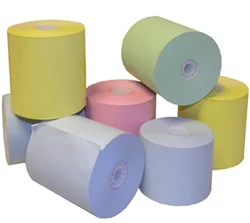
HDPE (High-Density Polyethylene) woven fabric is increasingly used in the agricultural sector due to its durability and versatility. Here are some key benefits:
1. Durability and Strength
HDPE woven fabric is highly resistant to tearing, puncturing, and UV degradation, making it suitable for various agricultural applications. Its robust nature ensures longevity, even in harsh weather conditions.
2. Weed Control
When used as ground cover, HDPE woven fabric effectively suppresses weed growth by blocking sunlight while allowing water and nutrients to permeate the soil. This reduces the need for chemical herbicides and promotes healthier crop growth.
3. Soil Erosion Prevention
The fabric can help prevent soil erosion by stabilizing the soil surface, especially on slopes. This is crucial for maintaining soil health and preventing the loss of topsoil.
4. Moisture Retention
By covering soil, HDPE woven fabric aids in moisture retention, reducing evaporation rates. This is particularly beneficial in dry regions or during drought conditions, helping crops thrive with less water.
5. Pest Control
HDPE woven fabric can be used to create protective barriers against pests and insects. This natural method reduces the need for chemical pesticides, promoting a more sustainable farming approach.
6. Versatile Applications
The fabric is used in various applications, including shade cloths, plant protection covers, erosion control mats, and silage covers. Its versatility allows farmers to utilize it in multiple ways, enhancing efficiency. Suppliers of bespoke PP Woven Bags, including those for packaging urea, chemicals, fertilizers, sugar, salt, rubber, and agricultural products, are provided with a wide range of options by our company, Shri Salasar Plastics.
7. Lightweight and Easy to Handle
Despite its strength, HDPE woven fabric is lightweight, making it easy to transport and install. This saves time and labor costs in agricultural operations.
8. Cost-Effective
Given its durability and multi-functionality, HDPE woven fabric can be a cost-effective solution for farmers. Its long lifespan reduces the need for frequent replacements, leading to savings in the long run.
9. Environmental Sustainability
Using HDPE woven fabric can contribute to sustainable farming practices by reducing reliance on chemicals, minimizing waste, and promoting better resource management.
10.Conclusion
HDPE woven fabric offers numerous benefits in the agricultural sector, from enhancing crop growth to promoting sustainable practices. Its durability, versatility, and eco-friendly properties make it an essential tool for modern farming. By integrating HDPE woven fabric into their operations, farmers can improve productivity while protecting the environment.







